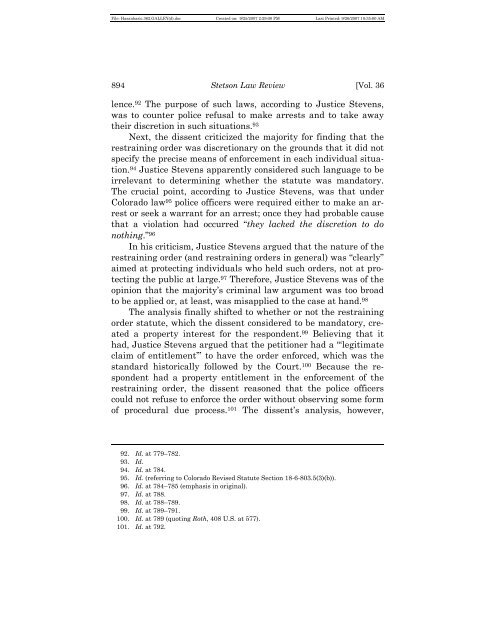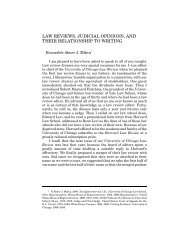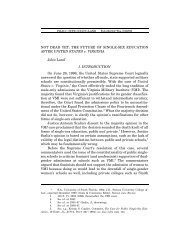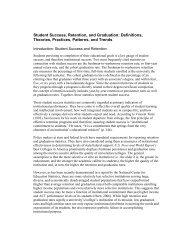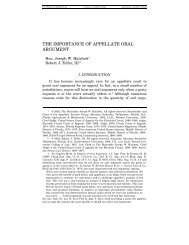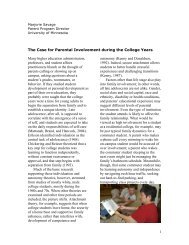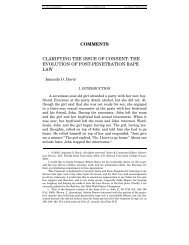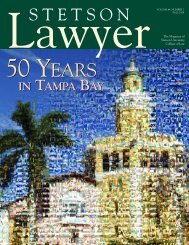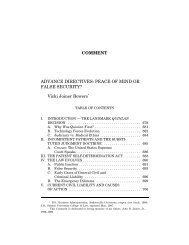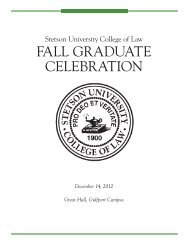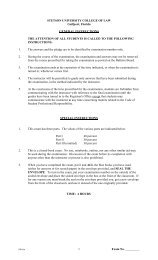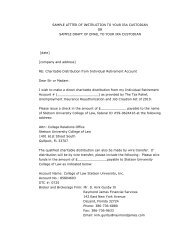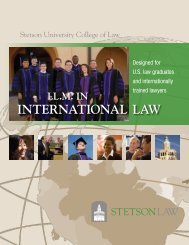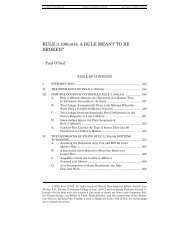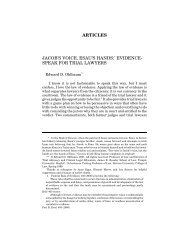TOWN OF CASTLE ROCK v. GONZALES: THE ... - Stetson University
TOWN OF CASTLE ROCK v. GONZALES: THE ... - Stetson University
TOWN OF CASTLE ROCK v. GONZALES: THE ... - Stetson University
You also want an ePaper? Increase the reach of your titles
YUMPU automatically turns print PDFs into web optimized ePapers that Google loves.
File: Hasanbasic.362.GALLEY(d).doc Created on: 9/25/2007 2:29:00 PM Last Printed: 9/26/2007 10:35:00 AM894 <strong>Stetson</strong> Law Review [Vol. 36lence. 92 The purpose of such laws, according to Justice Stevens,was to counter police refusal to make arrests and to take awaytheir discretion in such situations. 93Next, the dissent criticized the majority for finding that therestraining order was discretionary on the grounds that it did notspecify the precise means of enforcement in each individual situation.94 Justice Stevens apparently considered such language to beirrelevant to determining whether the statute was mandatory.The crucial point, according to Justice Stevens, was that underColorado law 95 police officers were required either to make an arrestor seek a warrant for an arrest; once they had probable causethat a violation had occurred “they lacked the discretion to donothing.” 96In his criticism, Justice Stevens argued that the nature of therestraining order (and restraining orders in general) was “clearly”aimed at protecting individuals who held such orders, not at protectingthe public at large. 97 Therefore, Justice Stevens was of theopinion that the majority’s criminal law argument was too broadto be applied or, at least, was misapplied to the case at hand. 98The analysis finally shifted to whether or not the restrainingorder statute, which the dissent considered to be mandatory, createda property interest for the respondent. 99 Believing that ithad, Justice Stevens argued that the petitioner had a “‘legitimateclaim of entitlement’” to have the order enforced, which was thestandard historically followed by the Court. 100 Because the respondenthad a property entitlement in the enforcement of therestraining order, the dissent reasoned that the police officerscould not refuse to enforce the order without observing some formof procedural due process. 101 The dissent’s analysis, however,92. Id. at 779–782.93. Id.94. Id. at 784.95. Id. (referring to Colorado Revised Statute Section 18-6-803.5(3)(b)).96. Id. at 784–785 (emphasis in original).97. Id. at 788.98. Id. at 788–789.99. Id. at 789–791.100. Id. at 789 (quoting Roth, 408 U.S. at 577).101. Id. at 792.


